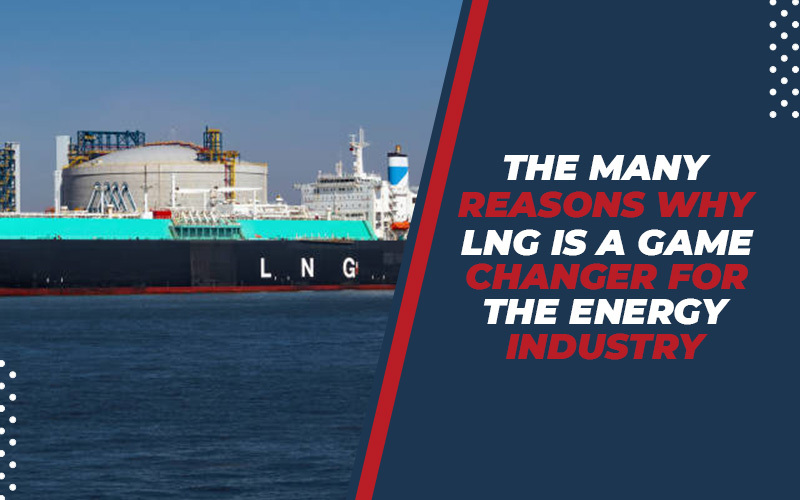The growth of natural gas liquefaction technology and the increased demand for clean energy worldwide have aided the exponential growth of the LNG (liquid natural gas) industry. Compared to coal and oil, LNG is cheaper and has significantly lower carbon emissions reduction. It emits up to 30% lesser greenhouse gas than both gasoline and diesel when used in the transportation industry, and 50% lesser than coal when used in electricity generation.
Revolutionizing Natural Gas: Key Businessmen in the Industry
1. Joseph Sigelman Chair and CEO, AG & P Group:
Joseph Sigelman and his team acquired Atlantic Gulf & Pacific (AG&P) in 2010. AG&P was at the time a construction firm. Joseph has over the years helped the company venture into and revolutionize the LNG industry. The company now has a firm grip on LNG markets in the Philippines, Indonesia, and India. With recent equity infusions of blue-chip shareholders and continued investment in large-scale LNG infrastructure projects around the larger Asian continent, the future of AG&P looks quite promising.
2. Saad Sherida al-Kaabi, the President & CEO, Qatar Energy:
Qatar Energy invests in the LNG industry through its subsidiary, Qatargas. The subsidiary has been in the gas industry since 1984 and has grown over the years to become the biggest LNG producer in the world. Going by the company’s data in 2021, Qatargas produces almost 19 billion standard cubic feet of natural gas and has about14 LNG trains with a total annual production capacity of 77mtpa. Six of these trains have a production capacity of 7.8 million tons/annum (mtpa) each.
3. Jack A. Fusco, President and Chief Executive Officer, Cheniere:
This company has been in the natural gas business since 1983. It operates natural gas liquefaction projects in Texas. Under the leadership of Jack Fusco, Cheniere had an estimated revenue of $17.6 billion and total assets of about $43.1 billion in 2021. The company’s estimated profits for 2021 were in excess of $2.3 billion in 2021.
4. Vagit Yusufovich Alekperov, former president of Lukoil:
The Moscow-based multinational energy corporation was incepted in 1991. It specializes in the extraction and distribution of natural gas and petroleum products in over 40 countries worldwide. Under the leadership of Vagit Yusufovich, Lukoil generated USD $6.9 billion in net income in 2021.
LNG As a Game Changer for the Energy Industry
Natural gas accounts for 25% of inland Europe’s energy consumption. From this perspective, the NLG sector, with its versatility and flexibility, has a huge potential in shaping the continent’s future competitive energy supply. On a global scale, LNG continues to provide the global shipping, power, and transportation sectors with sustainable and clean fuel. Projections by the BP Energy Outlook 2035 show that natural gas will be the most dominant fuel source in the world by 2035, ahead of oil. The projection also shows the LNG sector could account for nearly a third of the world’s primary energy before 2035. That in itself makes LNG a game-changer.
LNG has also proven to be a game changer in the marine sector, especially in the aftermath of the tough Sulfur emissions restrictions by the International Maritime Organization (IMO). The restrictions that came into force in 2020 limit sulfur emissions to below 0.5%, down from 3.5%. The limit drops to 0.1% in emission control areas (ECAs). The marine industry now has to rely on LNG as a bunker fuel.
In the transportation industry, LNG minimizes the air pollution caused by large commercial trucks. Environmental agencies around the world all agree that outdoor air pollution is among the biggest causes of premature deaths. LNG also solves the problem of indoor air pollution by aiding power generation in both remote residential and industrial sectors. Small-scale businesses and residential buildings are able to use LNG in its liquid form, without needing regasification. That enhances its affordability and, by extension, business profitability.
Final word
Environmental pressure is becoming more stringent as people around the world continue embracing sustainability. Energy demand in the world- especially in Europe, North America, and Asian markets- will also keep growing as industrialization and urbanization grows. Countries will have to turn to LNG to fuel their economic growth while keeping their GHG emissions in check. There are geopolitical constraints that LNG companies have to overcome when delivering this valuable product in markets worldwide, but these hurdles will keep reducing as the necessity for the product keeps growing.




